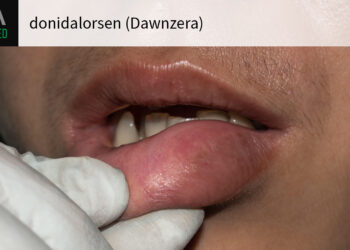The American College of Rheumatology (ACR) has released a summary of a guideline with updated recommendations for the treatment of systemic lupus erythematosus (SLE).
The previous guideline for managing SLE in adults was published in 1999, said Lisa R. Sammaritano, MD, of the Hospital for Special Surgery in New York City, who led the project.

At that time, “the recommended management for severe disease was high-dose steroid (eg, prednisone) plus an immunosuppressive agent, usually azathioprine or cyclophosphamide,” she told Medscape Medical News. “Since then, the spectrum of available therapies for SLE treatment has broadened considerably, and there have been important changes in our understanding of optimal use of rheumatology therapies, both new and old.”
This new guideline, applicable to both adults and children, focuses on reaching and maintaining remission or lower disease activity and minimizing treatment-related toxicities.
The guideline summary was posted last month on the ACR website, and the full manuscript will be published later this year. The document is divided into medication guidance, general treatment strategies, and organ-specific manifestations, including hematologic, neuropsychiatric, cutaneous, and musculoskeletal conditions attributed to SLE.
The three strong recommendations highlighted in the document include universal use of hydroxychloroquine (unless there is a contraindication), minimizing steroid use, and earlier introduction of conventional or biologic disease-modifying antirheumatic drugs.
Patients with controlled SLE symptoms on prednisone above 5 mg should aim to taper to 5 mg or lower (and ideally zero) within 6 months of starting steroids, according to the guideline summary.
“The goal is to limit people’s exposure to long-term, high-dose steroids due to the many associated side effects. Starting at a moderate or high dose is often necessary for a flare, but we encourage a fairly rapid taper — ie, over 6 months. Usually that means adding a steroid-sparing medicine like mycophenolate or one of the other immunosuppressive medicines we have available,” Sammaritano said.

Commenting on the guidelines for Medscape Medical News, Karen H. Costenbader, MD, MPH, director of the Lupus Program at Brigham and Women’s Hospital, Boston, said these three recommendations align with modern lupus treatment.
“I think we all want to get people with lupus on the lowest dose possible of prednisone as quickly as possible,” she explained, although disease severity plays an important role. While patients with milder cases can likely taper to 5 mg or lower daily within this 6-month range, for more severe cases, “it’s a lofty goal,” she said.
Limitations of available evidence affected the strength of the recommendations, Sammaritano explained.
“Many of our recommendations are conditional, requiring shared decision-making, and do not specify one particular immunosuppressive agent or class of agent due to the limited available evidence, the variations in treatment approach and preference among voting panel members, and the high value the patient panelists placed on each therapy’s side effects and tolerability,” she said.
This summary of the guidance is preliminary, Costenbader said, and the full text will provide more details on the evidence informing these recommendations. However, the high number of conditional statements — 32 of the summary’s 35 recommendations — “highlights a lot of gaps in our knowledge and where we need much more evidence,” she said.
A separate guideline on the screening, treatment, and management of lupus nephritis in both adults and children was presented at the ACR 2025 Annual Meeting and was published last month in Arthritis Care & Research.
Costenbader consults for AbbVie, Amgen, AstraZeneca, Bain, Biogen, Bristol Myers Squibb, Cabaletta Bio, GlaxoSmithKline, and Nimbus and has received research support from the National Institutes of Health, the US Department of Defense, the Lupus Foundation of America, Gilead, and Merck. Sammaritano had no disclosures.
Source link : https://www.medscape.com/viewarticle/acr-releases-new-guideline-lupus-treatment-adults-and-2025a1000f7p?src=rss
Author :
Publish date : 2025-06-05 12:28:00
Copyright for syndicated content belongs to the linked Source.














